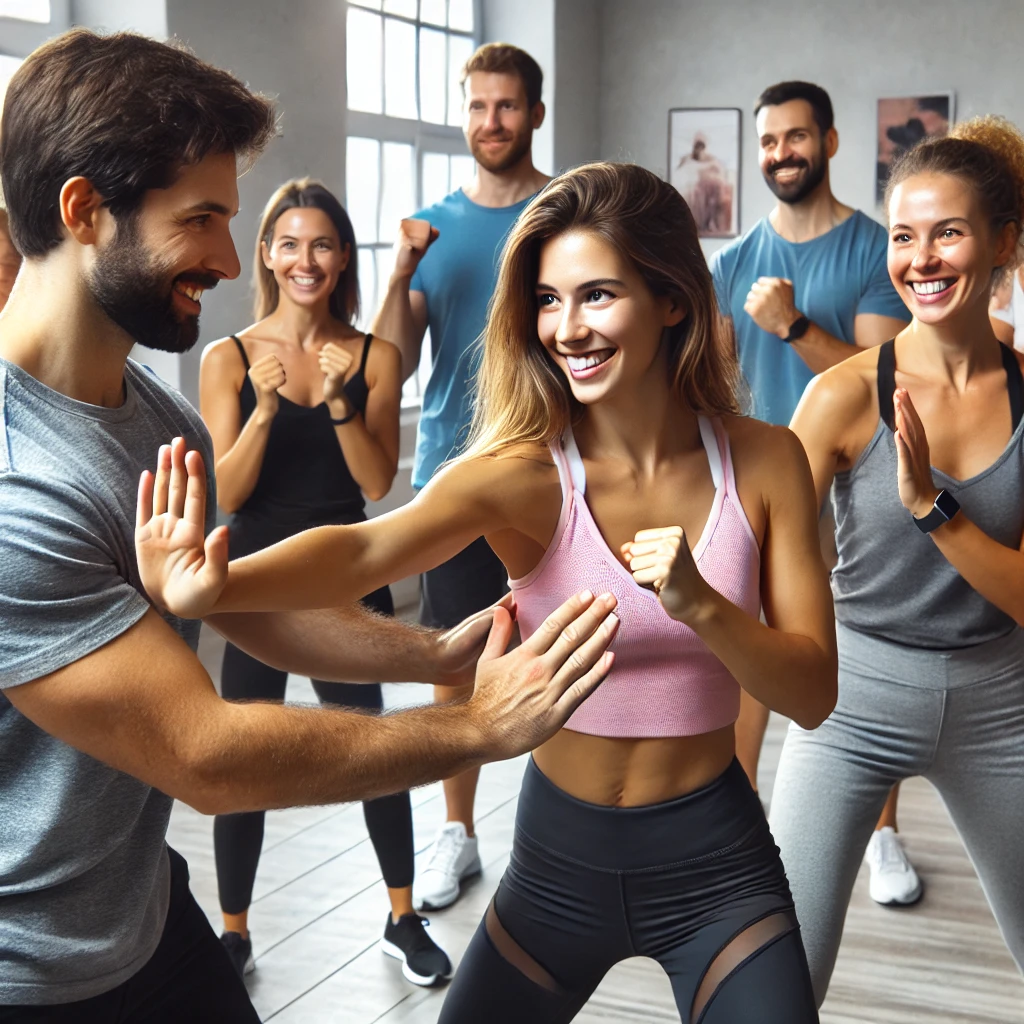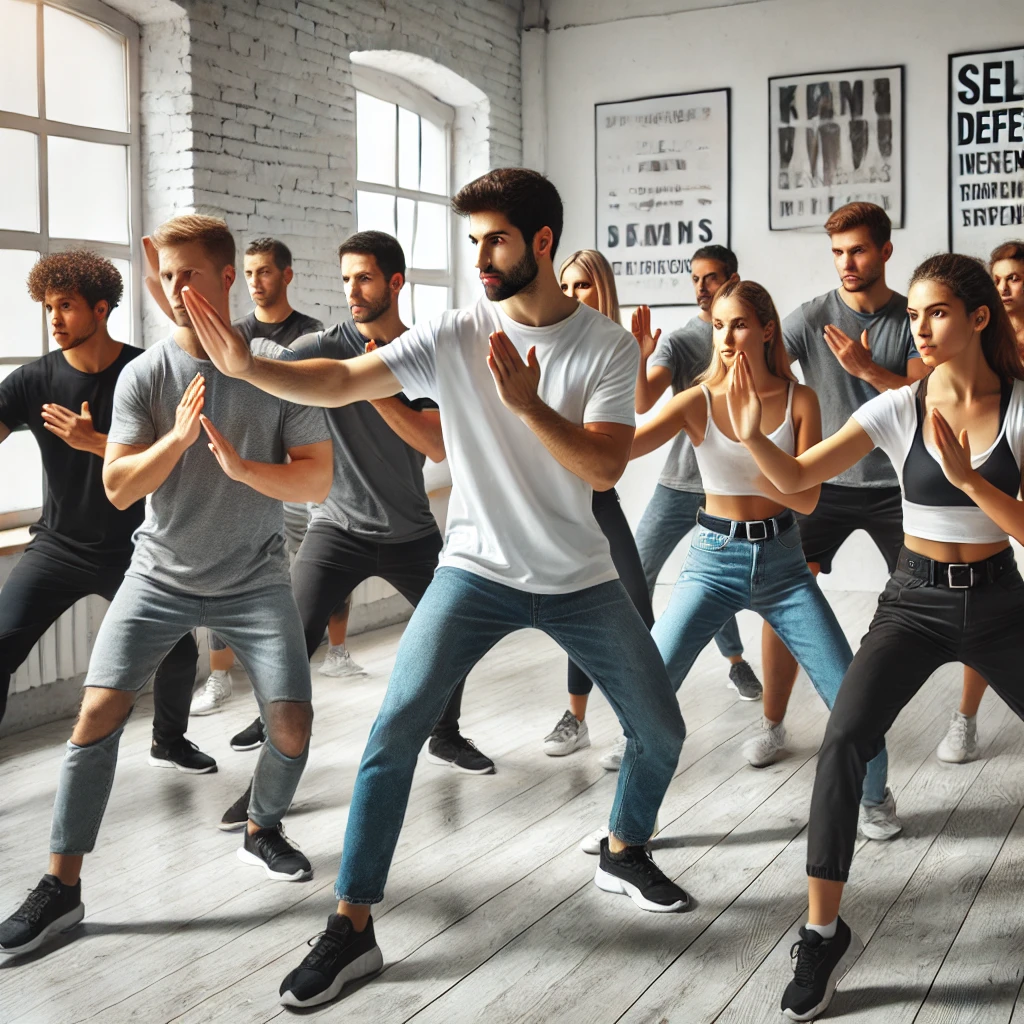Self defense classes not only teach you how to protect yourself, but they also build confidence and improve your overall fitness. If you’ve ever wondered how a few simple techniques can empower you, this guide will walk you through everything you need to know before joining a class.
What Are Self Defense Classes?
Self defense classes are training sessions designed to help you learn practical techniques to protect yourself in dangerous situations. Unlike traditional martial arts, these classes focus on real-world scenarios and simple moves that anyone can learn, regardless of age or fitness level. Whether it’s learning to break free from an attacker’s grip or mastering a quick escape, these classes are all about practical safety.
Types of Self Defense Classes
- Martial Arts-Based Classes:
These include disciplines like Karate, Taekwondo, Brazilian Jiu-Jitsu, or mixed martial arts (MMA) with a focus on self-defense techniques. - Modern Self Defense Programs:
Programs such as Krav Maga or Systema concentrate on practical techniques for real-life situations. - Specialized Programs:
Classes designed specifically for women, children, or seniors that focus on building strength and confidence. - Corporate Workshops:
Tailored for office environments, these sessions teach employees how to stay safe at work.
Benefits of Taking Self Defense Classes
- Physical Benefits:
- Improved fitness, strength, and balance.
- Enhanced coordination and flexibility.
- Mental Benefits:
- Increased confidence and reduced anxiety.
- Better situational awareness and quick decision-making.
- Social Benefits:
- Opportunity to meet like-minded people.
- Supportive community that motivates you to push your limits.
How to Choose the Right Class for You
- Define Your Goals:
Decide if you want to improve your fitness, learn practical safety techniques, or both. - Research Local Providers:
Look for trainers with proper certifications, check online reviews, or ask for personal recommendations. - Class Format & Schedule:
Choose a class that fits into your schedule. Some classes offer one-on-one training, while others are group sessions. - Cost & Commitment:
Consider trial sessions or drop-in classes to see if the program meets your expectations before committing long-term. - Visit the Facility:
A quick visit can help you get a feel for the environment and decide if it’s comfortable and supportive.
What to Expect in a Self Defense Class

- Warm-Up and Stretching:
Begin with light exercises to prepare your body. - Learning Basic Techniques:
Simple and repetitive drills that help you learn defensive moves. - Scenario Practice:
Role-playing common attack situations, so you’re ready to act quickly. - Cool Down and Q&A:
Ending with a cool-down period where you can ask questions and share your experience.
“I remember my very first class, I was nervous, but the supportive atmosphere and clear instructions made me feel comfortable right away. Over time, these sessions became a highlight of my routine, boosting my confidence and resilience.”
Tips for Beginners
- Start Slow:
Don’t worry if you’re new to physical activity. Most classes are designed for beginners. - Wear Comfortable Clothing:
Choose attire that lets you move freely. - Stay Open-Minded:
Learning self defense techniques takes practice, so be patient with yourself. - Practice Regularly:
Like any new skill, regular practice helps you build muscle memory.
Conclusion
Self defense classes are an excellent way to empower yourself, gain physical fitness, and build confidence. By understanding the different types of classes and what you can expect, you’ll be well on your way to choosing the perfect program for your needs.

My name is Azeem. I am a passionate digital marketer, content writer and expert in search engine optimization. I have more than 3 years of experience to help businesses like yours to boost their online presence. At Eromebuzz, I share trending stories, entertainment updates, and insights from the digital world to keep you informed, engaged and coming back for more.




